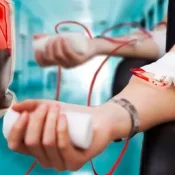Understanding Esophageal Cancer: Signs, Symptoms, and Surgical Treatment

Esophageal Cancer is a growing concern in Pakistan, particularly in the Khyber Pakhtunkhwa province, and neighboring Afghanistan.
The survival rate for patients diagnosed with this type of cancer is alarmingly low, but with proper treatment at a reputable hospital like Kulsum International Hospital, the chances of survival for five years can increase significantly to 40%. In this blog post, we will delve into the signs and symptoms of esophageal cancer, the available treatment options, and the effectiveness of keyhole surgery as a minimally invasive approach.
Signs and Symptoms
The primary symptom of esophageal cancer is progressive difficulty in swallowing food. Over a span of 2-3 months, patients may find it challenging to eat solid food, eventually only being able to consume liquids. If left untreated, this can lead to severe weight loss and further complications.
Available Treatment Options
The three main treatment modalities for esophageal cancer are surgery, chemotherapy, and radiotherapy. Surgery is considered the most effective option when the cancer is diagnosed at an early stage. It involves removing the cancerous part of the esophagus and reconstructing the remaining healthy portions. For cases diagnosed at stage 2 or 3, sandwich therapy, which combines chemotherapy and surgery, followed by more chemotherapy, is recommended. Radiotherapy can also be combined with chemotherapy at any stage to enhance the effectiveness of the treatment.



